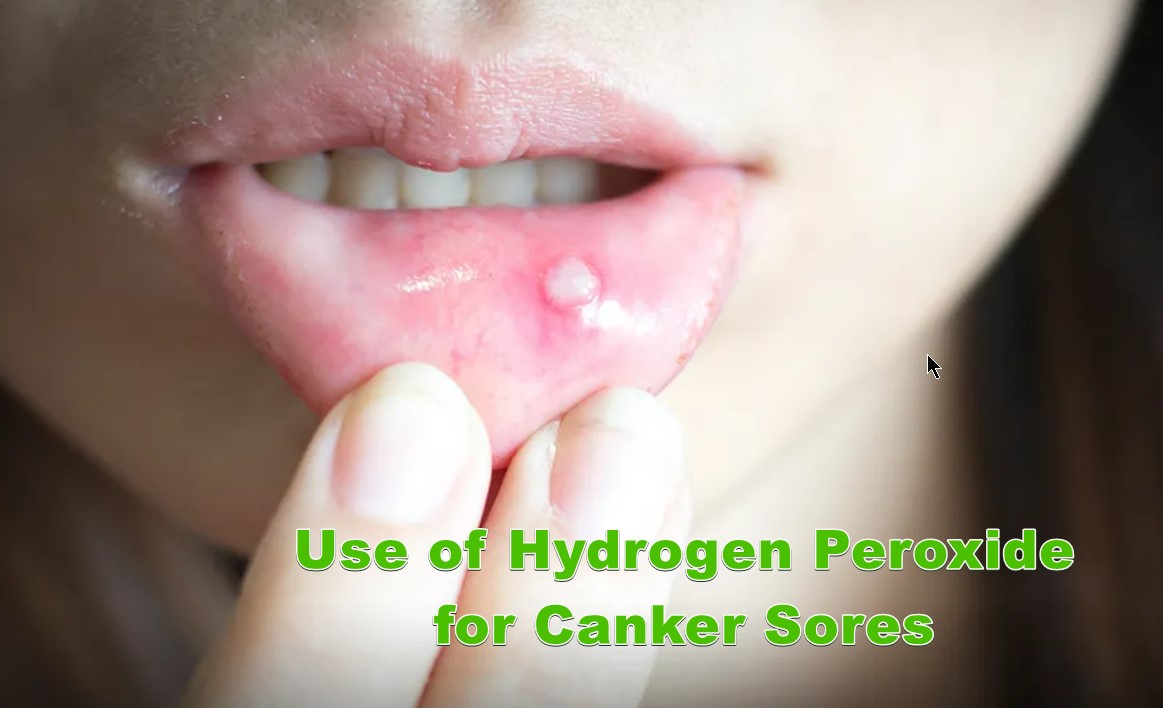Hydrogen peroxide is a popular home remedy for canker sores. The theory is that the hydrogen peroxide will kill the bacteria that cause the canker sores. Some people apply it directly to the sore, while others mix it with water and swish it around in their mouths.
Canker sores are a type of mouth sore that can be quite painful. They’re usually white or yellow and have a red border. Hydrogen peroxide is a common home remedy for canker sores. When used as directed, hydrogen peroxide can help heal canker sores and relieve pain.
However, it’s important to use it correctly, as too much hydrogen peroxide can actually make canker sores worse. In this blog post, we’ll explore the use of hydrogen peroxide for canker sores. We’ll cover how to use it, how it works, and when to see a doctor.
What are canker sores?
Canker sores are small, painful ulcers that can form on the soft tissue in your mouth or on your gums. They’re usually white or yellow and may have a red border. Canker sores can make eating and talking painful.
Most canker sores heal on their own within a few days to two weeks without leaving a scar. However, some people get them more often, and they can be quite painful. There is no sure way to prevent canker sores, but there are some things that may help reduce your risk:
• Avoiding foods that irritate your mouth, such as acidic or spicy foods
• Practicing good oral hygiene by brushing and flossing regularly
• Managing stress
If you get canker sores often, your doctor may prescribe a topical cream or ointment to help speed healing and relieve pain. In severe cases, your doctor may give you a corticosteroid medication to take by mouth for a short time.
Causes of canker sores
There are many potential causes of canker sores, including:
* Reaction to a food or other substance: Some people may develop canker sores in response to eating certain foods (such as acidic fruits or spicy dishes), using certain products (such as toothpaste), or coming into contact with other substances (such as pollen).
* Stress: Can be a trigger for canker sore outbreaks.
* Hormonal changes: Women may be more likely to get canker sores during times of hormonal flux, such as during menstruation or menopause.
* Illness: Can be associated with illnesses like celiac disease, Crohn’s disease, and Behcet’s disease.
* Nutritional deficiencies: Deficiencies in nutrients like iron, folic acid, and vitamin B12 have been linked to an increased risk of canker sores.
How to use hydrogen peroxide for canker sores
To use hydrogen peroxide for canker sores, mix together equal parts of 3% hydrogen peroxide and water. Using a cotton swab, apply the mixture directly to the canker sore. Allow it to sit on the sore for one minute before rinsing off with water. Repeat this process up to three times a day until the canker sore is healed.
There is no scientific evidence to support the use of hydrogen peroxide for canker sores. In fact, it may actually do more harm than good. Hydrogen peroxide is a harsh chemical and can irritate the delicate tissue in the mouth. If used directly on a canker sore, it can cause pain and burning. It’s also important to be careful when using hydrogen peroxide because it can bleach your teeth.
If you’re looking for a home remedy for canker sores, there are other options that are worth trying before resorting to hydrogen peroxide. Some people find relief from canker sores by applying a topical cream or ointment. You can also try rinsing your mouth with a saltwater solution.
Precautions when using hydrogen peroxide for canker sores
When using hydrogen peroxide for canker sores, there are a few precautions that you should take. First, be sure to dilute the hydrogen peroxide with water. Second, do not use hydrogen peroxide more than once or twice a day. Third, do not swallow the hydrogen peroxide. Finally, rinse your mouth with water after using hydrogen peroxide.
Are there any side effects associated with using hydrogen peroxide for canker sores?
There are a few potential side effects associated with using hydrogen peroxide for canker sores, but they are generally mild and temporary. The most common side effect is temporary stinging or burning at the site of application. Some people may also experience skin irritation, redness, or swelling. In very rare cases, more serious allergic reactions have been reported. If you experience any severe side effects after using hydrogen peroxide for canker sores, stop using it and seek medical attention immediately.
Conclusion
If you have a canker sore that is causing you pain, you may want to consider using hydrogen peroxide. Hydrogen peroxide can help to kill the bacteria that are causing the sore, and it can also help to speed up the healing process. Be sure to dilute the hydrogen peroxide with water before applying it to your sore, and always follow up with a moisturizer to keep your lips healthy.


